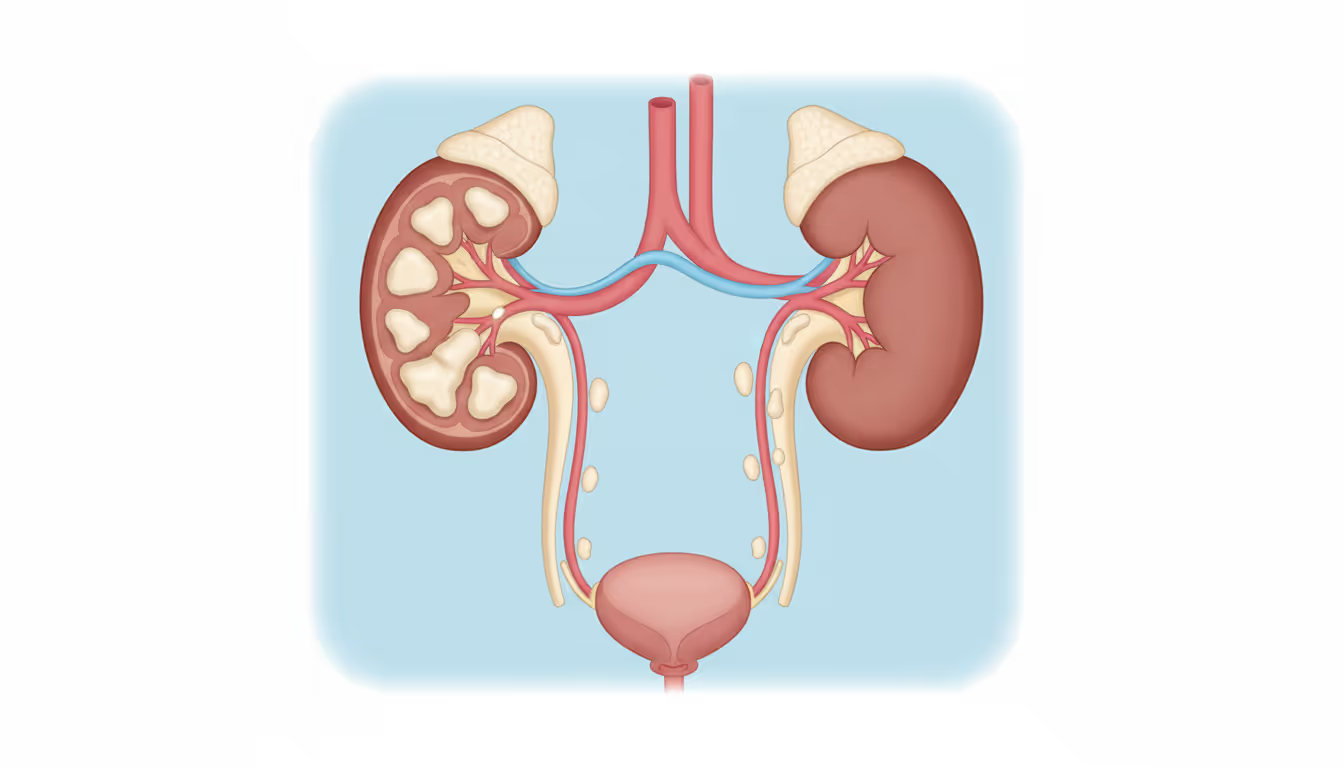
Formation of Kidney Stones:Kidney stones develop when stones form within the kidneys or urinary tract. These stones are a frequent cause of abdominal discomfort or pain, affecting 1 in 20 individuals at some point in their lives. The formation of kidney stones is often linked to reduced urine output or increased levels of stone-forming substances like calcium, oxalate, cystine, uric acid, and phosphate. Stones develop in the kidney's urine-collecting area and can vary in size, from tiny specks to large staghorn stones that can fill the renal pelvis.The cystine stones shown below, compared to a U.S. quarter, were extracted from a young woman's kidney using percutaneous nephrolithotomy (PNL), a procedure designed to crush and remove the hard stones typical of cystinuria. The pain associated with kidney stones usually begins suddenly, is extremely intense and colicky, and doesn’t improve with position changes. It often radiates from the back to the flank and into the groin, accompanied by nausea and vomiting.Several factors can increase the risk of developing kidney stones, including decreased fluid intake, intense physical activity leading to dehydration, medications that cause high calcium levels, and a personal or family history of stones. Treatment focuses on alleviating pain, ensuring proper hydration, and using antibiotics if an infection is present.Most stones pass naturally within 48 hours, although some may not. Factors influencing stone passage include the individual's body size, previous stone passage experience, pregnancy status, and the stone's size. A 4 mm stone has an 80% chance of passing, while a 5 mm stone has only a 20% chance. If a stone does not pass spontaneously, medical procedures performed by a urologist may be necessary.The term for stone formation is nephrolithiasis, from the Greek words nephros (kidney) and lithos (stone). Urolithiasis, derived from the French "urine," which traces back to the Latin "urina" and Greek "ouron" (urine), refers to urine stones. These stones are also known as renal calculi, with "calculus" (plural: calculi) being the Latin term for pebble.




